Related Research Articles
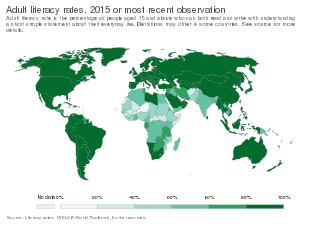
Literacy in its broadest sense describes "particular ways of thinking about and doing reading and writing" with the purpose of understanding or expressing thoughts or ideas in written form in some specific context of use. In other words, humans in literate societies have sets of practices for producing and consuming writing, and they also have beliefs about these practices. Reading, in this view, is always reading something for some purpose; writing is always writing something for someone for some purpose. Beliefs about reading, writing and their value for society and for the individual always influence the ways literacy is taught, learned, and practiced.

The Max Planck Institute for Evolutionary Anthropology is a research institute based in Leipzig, Germany, that was founded in 1997. It is part of the Max Planck Society network.
Information and communications technology (ICT) is an extensional term for information technology (IT) that stresses the role of unified communications and the integration of telecommunications and computers, as well as necessary enterprise software, middleware, storage and audiovisual, that enable users to access, store, transmit, understand and manipulate information.

Open educational resources (OER) are teaching, learning, and research materials intentionally created and licensed to be free for the end user to own, share, and in most cases, modify. The term "OER" describes publicly accessible materials and resources for any user to use, re-mix, improve, and redistribute under some licenses. These are designed to reduce accessibility barriers by implementing best practices in teaching and to be adapted for local unique contexts.
The history of education in Africa can be roughly divided into pre- and post- colonial periods. Since the introduction of formal education to Africa by European colonists, African education, particularly in West and Central Africa, is characterised by both traditional African teachings and European-style schooling systems. The state of education reflects not only the effects of colonialism, but instability resulting from and exacerbated by armed conflicts in many regions of Africa as well as fallout from humanitarian crises such as famine, lack of drinking water, and outbreaks of diseases such as malaria and Ebola, among others. Although the quality of education and the quantity of well-equipped schools and teachers has steadily increased since the onset of the colonial period, there are still evident numerous inequalities in the existing educational systems based on region, economic status, and gender.

Education in Rwanda has undergone considerable changes throughout Rwanda's recent history, and has faced major disruptions due to periods of conflict. Education was divided by gender whereby women and men had a different education relevant to their responsibilities in day-to-day life. Women were mostly taught housekeeping while men were mainly taught how to hunt, raise animals, and fish. This is because Rwanda was a community-based society where every member had a specific contribution to the overall development of the community. Older family members like grandparents usually took on the role of educators.

Education in Mali is considered a fundamental right of Malians. For most of Mali's history, the government split primary education into two cycles which allowed Malian students to take examinations to gain admission to secondary, tertiary, or higher education. Mali has recently seen large increases in school enrollment due to educational reforms.

There have been major strides with Education in Equatorial Guinea over the past ten years, although there is still room for improvement. Among sub-Saharan African countries, Equatorial Guinea has one of the highest literacy rates. According to The World Factbook - Central Intelligence Agency as of 2015, 95.3% of the population age 15 and over can read and write in Equatorial Guinea were respectively literate. Education in Equatorial Guinea is overseen by the Ministry of Education and Science (MEC). Split into four levels, preschool, primary, secondary, and higher education, the Equatorial Guinea's educational system only deems preschool and primary school mandatory. Education in Equatorial Guinea is free and compulsory until the age of 14. Although it has a high GNI per capita, which, as of 2018, was 18,170 international dollars, its educational outcomes fall behind those of the rest of West and Central Africa. In 1993, the gross primary enrollment rate was 149.7 percent, and the net primary enrollment rate was 83.4 percent. Late entry into the school system and high dropout rates are common, and girls are more likely than boys to drop out of school. As of 2015, the net enrollment rates for each education level are as follows: 42 percent for preschool, between 60 percent and 86 percent for primary school, and 43.6 percent for secondary school. UNESCO has cited several issues with the current educational system, including poor nutrition, low quality of teachers, and lack of adequate facilities.
Molteno is a town in Lombardy, Italy.

Molteno is a town in the Eastern Cape province of South Africa.
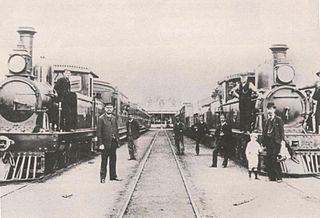
The Cape Government Railways (CGR) was the government-owned railway operator in the Cape Colony from 1874 until the creation of the South African Railways (SAR) in 1910.

The Molteno Brothers, Edward (1877-1950) and Harry (1880-1969) Molteno, were sons of Cape Prime Minister John Molteno by his third wife Sobella Maria. Pioneering and successful exporters, they had a huge influence on South Africa's fruit industry.
Marion Molteno is a prize-winning novelist and writer, whose fiction draws inspiration from the cross-cultural range of her life experience. She left South Africa after being involved in student protests against the apartheid regime, lived in Zambia for eight years, and since 1977 has lived in London, where she worked with minority communities and asylum seekers. She was a policy adviser in Save the Children, supporting work with vulnerable children across the world. She edits the work of the Urdu scholar Ralph Russell.
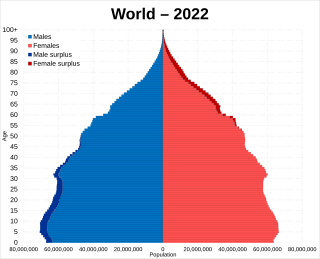
Earth has a human population of over 8 billion as of 2024, with an overall population density of 50 people per km2. Nearly 60% of the world's population lives in Asia, with almost 2.8 billion in the countries of China and India combined. The percentage shares of China, India and rest of South Asia of the world population have remained at similar levels for the last few thousand years of recorded history. The world's literacy rate has increased dramatically in the last 40 years, from 66.7% in 1979 to 86.3% today. Lower literacy levels are mostly attributable to poverty. Lower literacy rates are found mostly in South Asia and Sub-Saharan Africa.
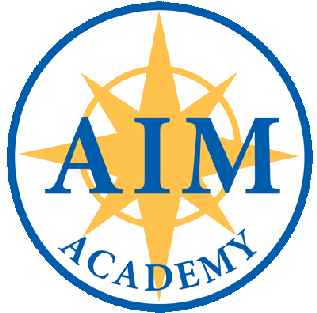
AIM Academy is an independent co-educational college prep school serving students with language-based learning differences in grades 1-12. AIM was founded in 2006 and moved to its current location in Conshohocken, Pennsylvania in 2012. The AIM Institute for Learning & Research provides professional learning opportunities grounded in the Science of Reading including online teacher training courses and access to researchers.

The African Gender Institute (AGI) is a feminist research and teaching group that studies issues related to gender in Africa. It has become a department at the University of Cape Town (UCT), administered within the School of African and Gender Studies, Social Anthropology and Linguistics. The AGI has its own staff and has a unique degree of independence from UCT.
The Institute for Security Studies, also known as ISS or ISS Africa, described itself as follows: "an African organisation which aims to enhance human security on the continent. It does independent and authoritative research, provides expert policy analysis and advice, and delivers practical training and technical assistance." Their areas of research include transnational crimes, migration, maritime security, development, peacekeeping, peacebuilding, crime prevention, criminal justice, conflict analysis and governance. It is the largest independent research institute in Africa dealing with human security and is headquartered in Pretoria, South Africa, with offices in Kenya, Ethiopia and Senegal. In 2019, it was ranked 116th by the Global Go To Think Tanks Report and 55th among think tanks outside the United States.
The African Storybook (ASb) is a multilingual literacy initiative that works with educators and children to publish openly licensed picture storybooks for early reading in the languages of Africa. An initiative of Saide, the ASb has an interactive website that enables users to read, create, download, translate, and adapt storybooks. The initiative addresses the dire shortage of children's storybooks in African languages, crucial for children's literacy development. As of March 2023, the website had 3 800 original titles, 7 266 translations and 236 languages represented.
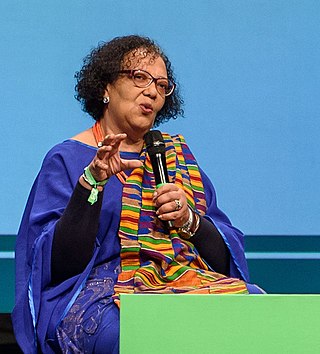
Dorothy K. Gordon is a Ghanaian technology activist and development specialist. She was the founding director general of the Ghana-India Kofi Annan Centre of Excellence in ICT (AITI-KACE). She left AITI-KACE in 2016. She is former board member of Creative Commons and currently serves on its advisory council. She also serves on the board of Linux Professional Institute

The digital divide is an economic and social inequality with regard to access to, use of, or impact of information and communication technologies (ICT). Factors causing the divide can vary depending on the country and culture, as can the potential solutions for minimizing or closing the divide.
References
- ↑ "Molteno". www.molteno.co.za. Retrieved 2018-12-17.
- ↑ "access.educationdevelopment.org - Partners". access.educationdevelopment.org. Retrieved 2018-12-17.
- ↑ masennya (2009-04-06). "Molteno Institute for Language and Literacy". NGO Pulse. Retrieved 2018-12-17.